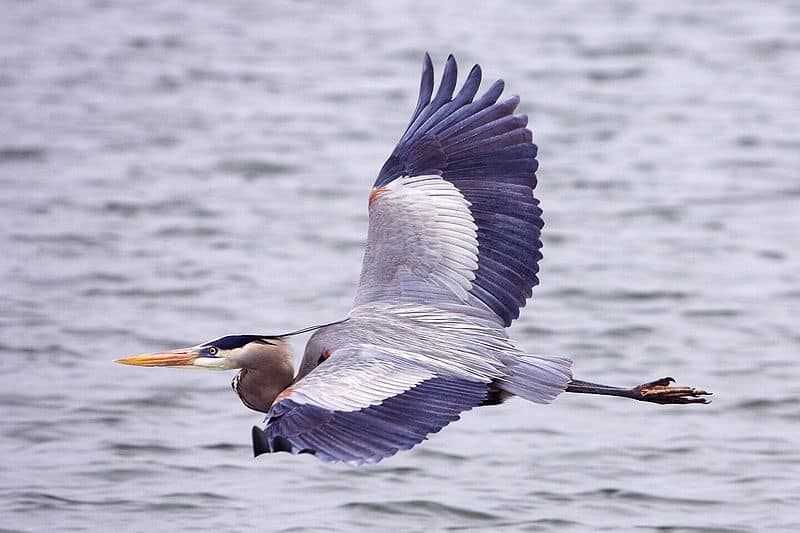I recently observed the Great Blue Heron rookery in the Trent Wildlife Sanctuary. As a point of interest, I noticed the rookery is quite visible from the height of land where the Tree Swallow/Eastern Bluebird research nesting site is located along the Blue trail, as one departs the Blue trail in a south western route. You have to use binoculars but I spotted the rookery from the research site at 2 different locations on that ‘high’ land elevation.
I have enjoyed observing the Great Blue Herons all my life. There used to be a small rookery (4 nests) near our home of 30 years when we lived adjacent to the Algonquin Park boundary. Most years, each pair of birds usually raised 3 offspring. At the rookery here at Trent, of the 8 active nests, I observed only 2 nests with 3 offspring. I believe all the others have 2 offspring. There was only 1 nest that I observed 1 offspring in, but the second offspring might just not have been visible from my perspective/orientation . For your information, I have since learned that there used to be a rookery on the south west side of Methuen Lake, south of Coe Hill. I must try to find time to check out that area as well, to see if that rookery is still active.
Of all the observations I have made of the Great Blue Herons over the years, I experienced a ‘new’ and exciting observation when I went to the Trent rookery last Sunday (June 18) afternoon. I watched the herons for about 2.5 hours, throughout the rain storm. During a very heavy downpour (thunder and lightning in the distance) which lasted only ~ 10 to 15 minutes, there was a ‘feeding frenzy’. During that short interval, 4 different adults returned to their respective nests and the offspring were fed. Was this behaviour just fate, or was there a natural variable occurring that stimulated this feeding frenzy? Of course, one could hypothesize in limitless manner to explain this observation.
Thanks very much for your guidance in locating this small rookery.
Joy (tranquillitybay@bell.net)
